THE PH.D. GRIND
A Ph.D. Student Memoir
Philip J. Guo
philip@pgbovine.net
Third Anniversary Reprint
with margin notes from the perspective of a first-year assistant professor
This book is free, but you can support it with a small donation:
http://pgbovine.net/support.htm
Current release: May 28, 2015
Original release: July 16, 2012
Read it online: http://pgbovine.net/PhD-memoir.htm
Copyright Philip J. Guo
�
�
To the unexpected.
�
�
Contents
Prologue
Year One: Downfall
Year Two: Inception
Year Three: Relapse
Intermission
Year Four: Reboot
Year Five: Production
Year Six: Endgame
Epilogue
1
5
21
33
45
53
69
85
99
�
�
These margin notes are
These margin notes are
written in mid-2015, three
written in mid-2015, three
years after The Ph.D.
years after The Ph.D.
Grind was published.
Grind was published.
At this time, I have just
At this time, I have just
finished my first year
finished my first year
as an assistant professor
as an assistant professor
of computer science, so
of computer science, so
these notes reflect my
these notes reflect my
current opinions as a
current opinions as a
new faculty member.
new faculty member.
To download a version
To download a version
without these notes, visit
without these notes, visit
http://pgbovine.net/
http://pgbovine.net/
PhD- memoir.htm
PhD- memoir.htm
Preface
This book chronicles my six years of working towards a Ph.D. in com-
puter science at Stanford University from 2006 to 2012. A diverse
variety of people can benefit from reading it, including:
• undergraduates who might be interested in pursuing a Ph.D.,
• current Ph.D. students who are seeking guidance or inspiration,
• professors who want to better understand Ph.D. students,
• employers who hire and manage people with Ph.D. degrees,
• professionals working in any creative or competitive field where
self-driven initiative is crucial,
• and educated adults (or precocious kids) who are curious about
how academic research is produced.
The Ph.D. Grind di↵ers from existing Ph.D.-related writings due
to its unique format, timeliness, and tone:
Format – The Ph.D. Grind is a memoir for a general educated
audience, not a “how-to guide” for current Ph.D. students. Although
Ph.D. students can glean lessons from my experiences, my goal is
not to explicitly provide advice. There are plenty of how-to guides
and advice columns for Ph.D. students, and I am not interested in
contributing to the fray. These articles are filled with generalities
v
�
such as “be persistent” and “make some progress every day,” but an
advantage of the memoir format is that I can be concrete and detailed
when telling my own story.
Timeliness – I wrote The Ph.D. Grind immediately after finish-
ing my Ph.D., which is the ideal time for such a memoir. In contrast,
current Ph.D. students cannot reflect on the entirety of their experi-
ences like I can, and senior researchers who attempt to reflect back on
their Ph.D. years might su↵er from selective hindsight.
Tone – Although it’s impossible to be unbiased, I try to maintain a
balanced tone throughout The Ph.D. Grind. In contrast, many people
who write Ph.D.-related articles, books, or comics are either:
• successful professors or research scientists who pontificate stately
advice, adopting the tone of “grad school is tough, but it’s a
delectable intellectual journey that you should enjoy and make
the most of . . . because I sure did! ”
• or bitter Ph.D. graduates/dropouts who have been traumatized
by their experiences, adopting a melodramatic, disillusioned,
self-loathing tone of “ahhh my world was a living hell, what did
I do with my life?!? ”
Stately advice can motivate some students, and bitter whining
might help distressed students to commiserate, but a general audi-
ence will probably not be receptive to either extreme.
Finally, before I begin my story, I want to emphasize that there is a
great deal of diversity in Ph.D. student experiences depending on one’s
school, department, field of study, and funding situation. I feel very
fortunate that I have been granted so much freedom and autonomy
throughout my Ph.D. years; I know students who have experienced
far more restrictions. My story is only a single data point, so what
I present might not generalize. However, I will try my best to avoid
being overly specific. Happy reading!
Philip Guo, June 2012
I already have selective
I already have selective
hindsight, and I’ve been
hindsight, and I’ve been
out for only three years.
out for only three years.
I’m so glad that I wrote
I’m so glad that I wrote
this book right when I
this book right when I
graduated. There’s no
graduated. There’s no
way I can recapture those
way I can recapture those
raw feelings ever again.
raw feelings ever again.
I cannot emphasize this
I cannot emphasize this
point enough.
I enjoyed
point enough.
I enjoyed
a ton of privilege during
a ton of privilege during
my Ph.D., most notably
my Ph.D., most notably
because I was almost
because I was almost
fully-funded by fellow-
fully-funded by fellow-
ships and attended a
ships and attended a
top-tier school. My ex-
top-tier school. My ex-
perience would have
perience would have
differed greatly if that
differed greatly if that
was not the case.
was not the case.
So much has changed
So much has changed
in the past three years.
in the past three years.
I’ve held four jobs since
I’ve held four jobs since
writing this book: soft-
writing this book: soft-
ware engineer at Google,
ware engineer at Google,
visiting researcher at edX,
visiting researcher at edX,
postdoc at MIT, and now
postdoc at MIT, and now
assistant professor at the
assistant professor at the
University of Rochester.
University of Rochester.
�
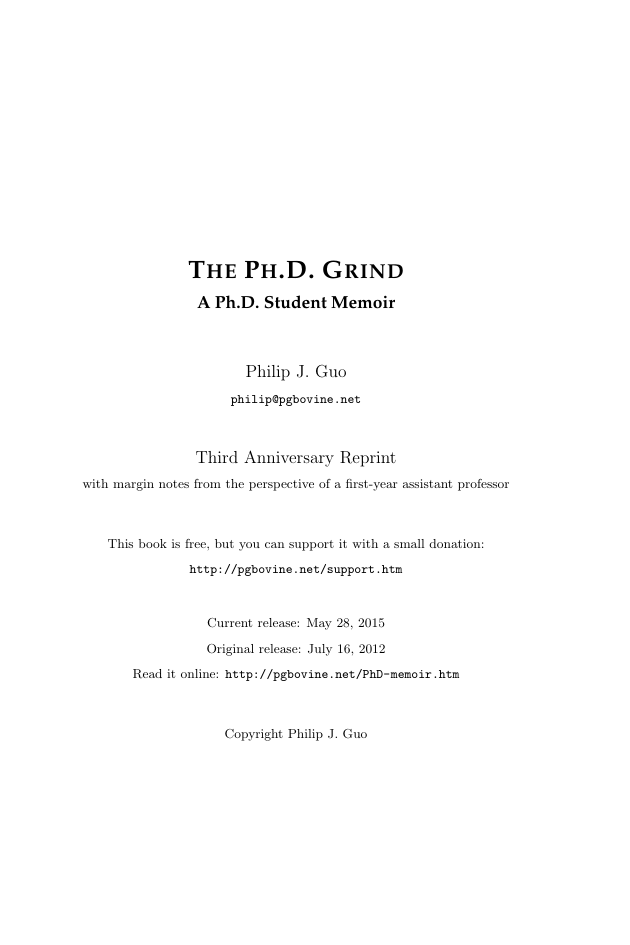

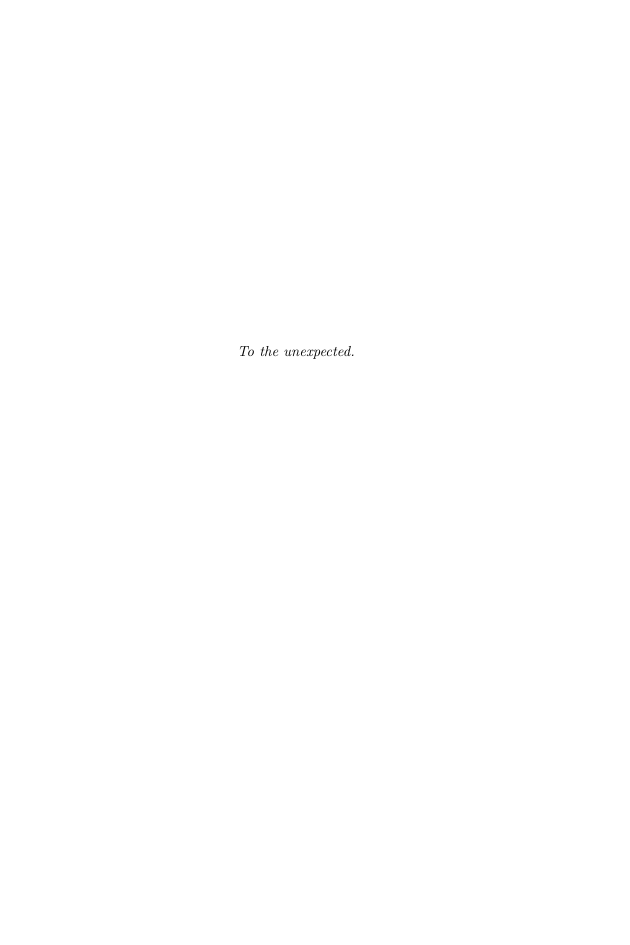

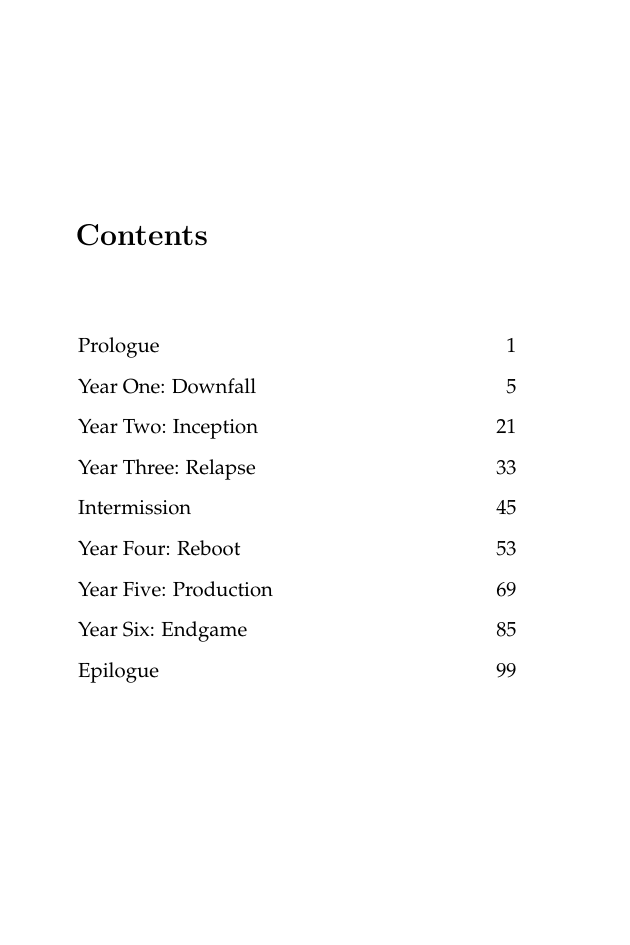

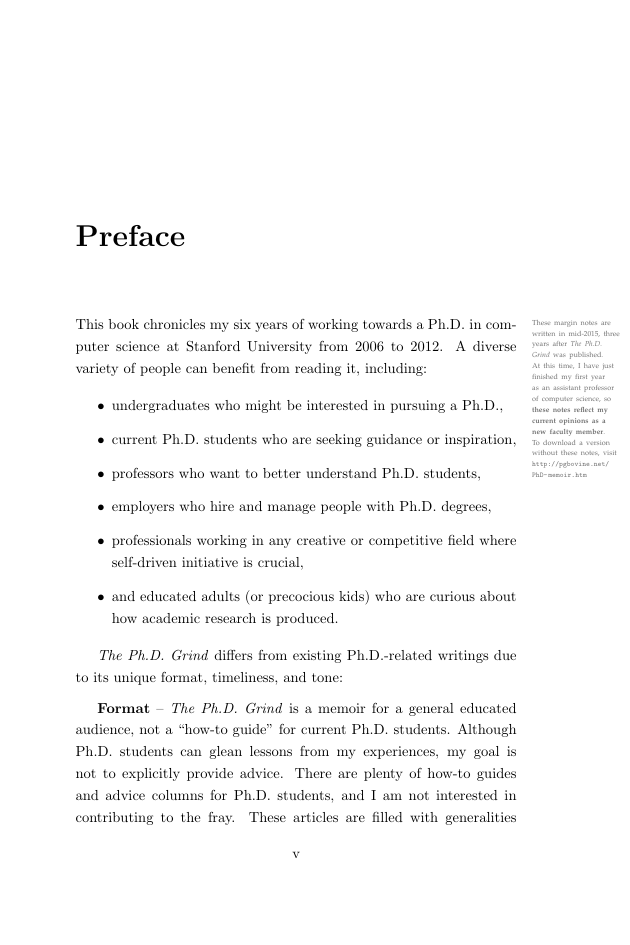
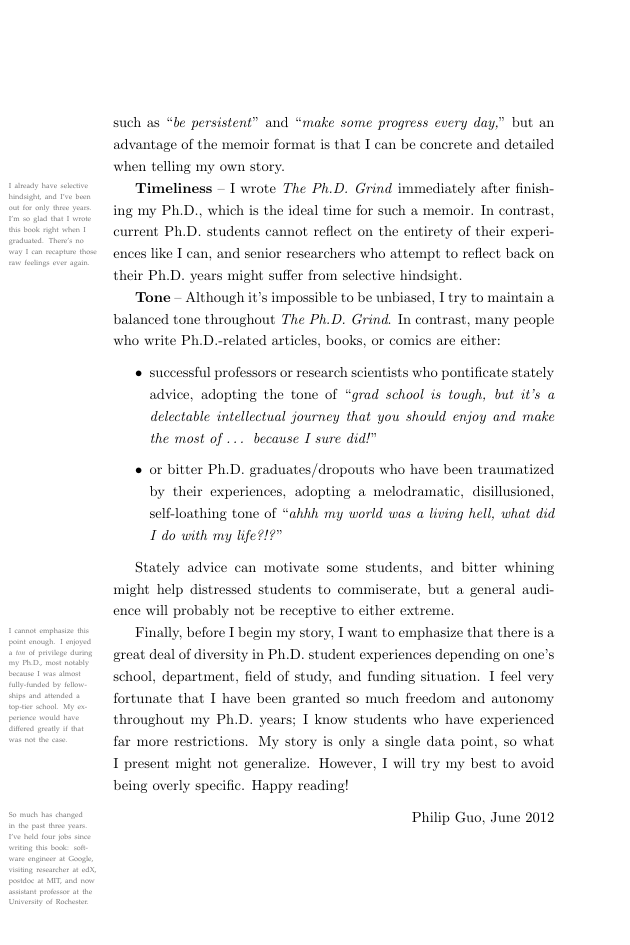








 2023年江西萍乡中考道德与法治真题及答案.doc
2023年江西萍乡中考道德与法治真题及答案.doc 2012年重庆南川中考生物真题及答案.doc
2012年重庆南川中考生物真题及答案.doc 2013年江西师范大学地理学综合及文艺理论基础考研真题.doc
2013年江西师范大学地理学综合及文艺理论基础考研真题.doc 2020年四川甘孜小升初语文真题及答案I卷.doc
2020年四川甘孜小升初语文真题及答案I卷.doc 2020年注册岩土工程师专业基础考试真题及答案.doc
2020年注册岩土工程师专业基础考试真题及答案.doc 2023-2024学年福建省厦门市九年级上学期数学月考试题及答案.doc
2023-2024学年福建省厦门市九年级上学期数学月考试题及答案.doc 2021-2022学年辽宁省沈阳市大东区九年级上学期语文期末试题及答案.doc
2021-2022学年辽宁省沈阳市大东区九年级上学期语文期末试题及答案.doc 2022-2023学年北京东城区初三第一学期物理期末试卷及答案.doc
2022-2023学年北京东城区初三第一学期物理期末试卷及答案.doc 2018上半年江西教师资格初中地理学科知识与教学能力真题及答案.doc
2018上半年江西教师资格初中地理学科知识与教学能力真题及答案.doc 2012年河北国家公务员申论考试真题及答案-省级.doc
2012年河北国家公务员申论考试真题及答案-省级.doc 2020-2021学年江苏省扬州市江都区邵樊片九年级上学期数学第一次质量检测试题及答案.doc
2020-2021学年江苏省扬州市江都区邵樊片九年级上学期数学第一次质量检测试题及答案.doc 2022下半年黑龙江教师资格证中学综合素质真题及答案.doc
2022下半年黑龙江教师资格证中学综合素质真题及答案.doc